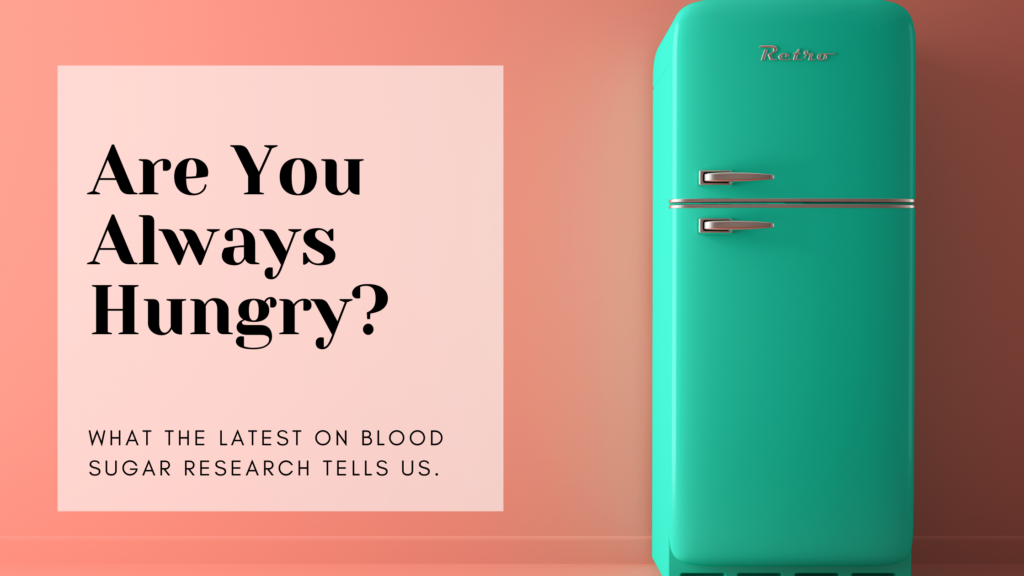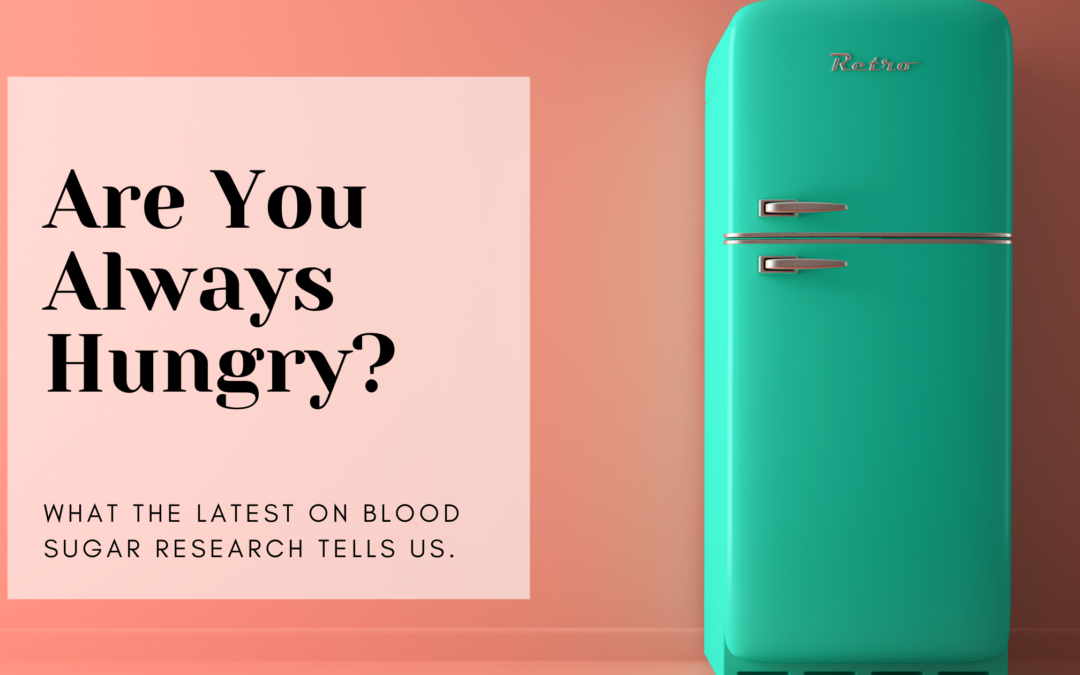Why am I always hungry?
Blog Post Contribution by MNT Dietitian, Nikki Finkenthal


Do you feel like you’re always hungry? You’ve had a “reasonable” amount of food, but you’re wondering why you’re looking for food a few hours later? The answer could lie in your unique blood sugar response to food.
Your Unique Blood Sugar Response
Our blood sugar response can vary based on a wide variety of genetics and metabolism. On average, when we eat a meal, our blood sugar peaks and falls back to normal within 2 hours. However, recent research suggests that our unique peaks and valleys of our blood sugars can impact how much we eat throughout the day. For individuals who experience larger blood sugar “swings” or big dips in blood sugar levels, they’re likely to feel 9% hungrier compared to those with smaller swings. Deep blood sugar dips therefore lead to the desire to eat a snack or meal as soon as 30 minutes after their previous meal! Overtime, this metabolic response could result in eating more food on a daily basis. Research showed that they consumed roughly 300+ additional calories compared to individuals with smaller blood sugar responses.
I’m Always Hungry. What Can I Do To Avoid Hanger?!
As we learn more about the relationship to blood sugar levels, hunger and food intake, without using a blood glucose meter around the clock, what can we do? It starts with paying attention to how you feel before and after eating. Choose foods and food combinations that help you feel fuller for longer. Honor your individuality and let go of comparing yourself to family members, friends or the latest diet. When we personalize our nutrition we’re more likely to support our health, energy levels and body weight.
Sustainable Strategies to Combat: Why Am I Always Hungry?
What if I’m the one show always feels hungry? Explore the following:
- Eating smaller meals throughout the day instead of the standard breakfast, lunch and dinner. Smaller, more frequent meals might help better regulate or stabilize your blood sugar response, energy levels and appetite.
- Include protein with every meal and snack! Protein can help with satiety or feelings of fullness with smaller impacts on blood sugar responses.
- Adequate fiber is key! Fiber not only has many gut health benefits, but it can help control hunger responses. Swap low fiber products like white pasta for whole-wheat pasta or apple-flavored granola bars for apples.
- Remember, you hold the wisdom. Closely monitoring how you feel before and after meals is key. Notice how long meals keep you feeling satisfied and ditch the meals that leave you feeling hungry mere minutes or a few hours later.
In our practice, we celebrate our clients’ uniqueness, and we personalize our plans. Keeping up with the latest research is our job, and we’ll continue to incorporate what we learn into our recommendations. Happy curiosity around eating!
Journal Reference:
- Patrick Wyatt, Sarah E. Berry, Graham Finlayson, Ruairi O’Driscoll, George Hadjigeorgiou, David A. Drew, Haya Al Khatib, Long H. Nguyen, Inbar Linenberg, Andrew T. Chan, Tim D. Spector, Paul W. Franks, Jonathan Wolf, John Blundell, Ana M. Valdes. Postprandial glycaemic dips predict appetite and energy intake in healthy individuals. Nature Metabolism, 2021; DOI: 10.1038/s42255-021-00383-x

